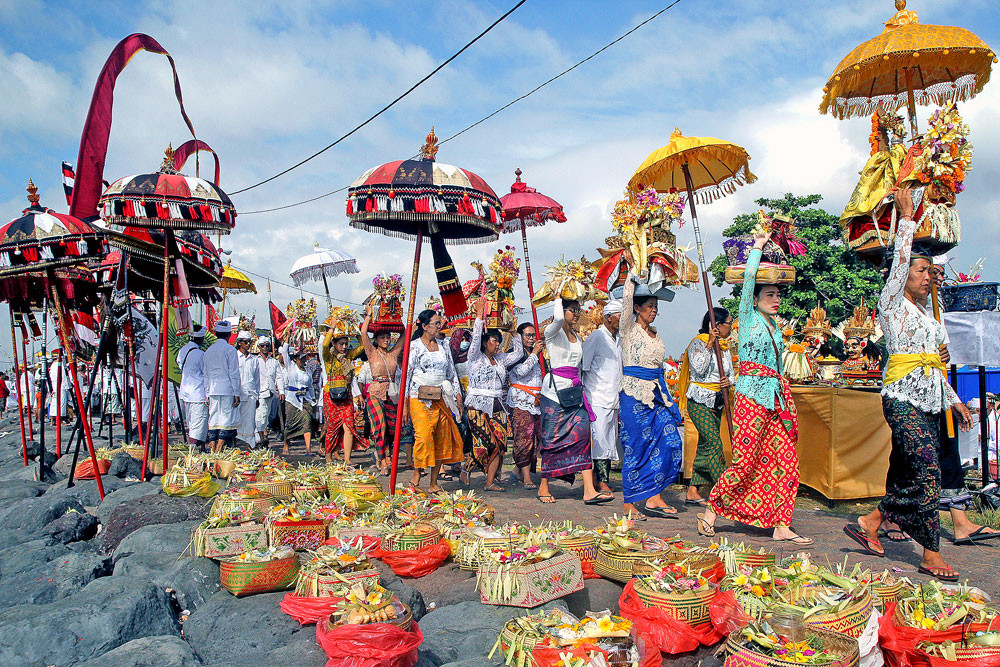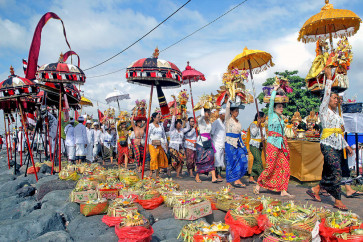Popular Reads
Top Results
Can't find what you're looking for?
View all search resultsPopular Reads
Top Results
Can't find what you're looking for?
View all search resultsNyepi — A perfect time to ponder
Change text size
Gift Premium Articles
to Anyone
M
any outsiders are intrigued by the prospect of experiencing Nyepi (Day of Silence) in Bali. Witnessing unlighted houses and deserted streets, absolute silence is a thrill in itself. But for the Balinese, Nyepi is a serious affair.
The Hindu Day of Silence is a time to ponder the balance of one’s good and bad deeds, whether one has achieved enough dharma (sacrifices for the good of humanity) and most importantly whether one has fully adhered to the Balinese philosophy of life, the Tri Hita Karana, which dictates that all Balinese must live in harmony with their surroundings, namely fellow beings, spiritual beliefs and natural environment.
In his relations with his fellow beings, man is taught to practice Tri Kaya Parisudha, having a clean mind, expressing clean words and doing clean acts while his attitude toward others should be in line with Tat Tvam Asi or the reciprocal concept of “I am you and you are me”. Otherwise, the Karana Palawill befall one as one’s acts will lead to retribution in kind.
These three dictums guide man to behave in his community. Bali being a tight-knit and highly communal society where interaction is very close, such behavioral guidelines are paramount in safeguarding social harmony.
As for man’s relation with his natural surroundings, he is governed by the doctrine of Rta, which says that all living beings and elements of nature are subject to the same laws. This conviction of man’s equal standing with nature is further enhanced by the concept of Panca Maha Bhuta and Bhuwana Alit, which stipulates that all elements of the universe and the world, including all their inhabitants, are made of the same materials.
As such, man must respect everything that abounds around his environment while this same environment will protect and nurture him.
In essence, this concept rests on the basic belief of man and nature’s reciprocal ties. This explains why Bali, until the advent of modernization and influx of mass tourism, was lauded as one of the world’s most pristine places. It also provides for Bali to be seen as an example for the world to carry out its biocultural conservation.

















